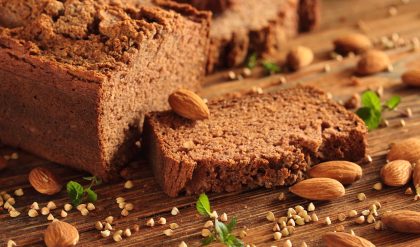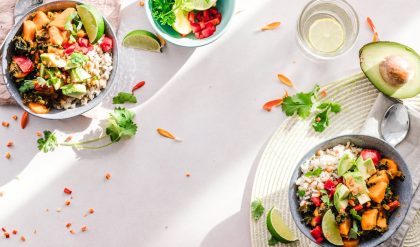Maintaining good health through proper nutrition is essential for overall well-being, and one of the most important nutrients to consider is protein. In particular, vegetable proteins are gaining popularity due to their wide array of health benefits, including supporting the immune system, promoting muscle growth, and keeping your skin youthful and vibrant. Whether you’re looking to adopt a more plant-based diet or simply want to add variety to your meals, incorporating vegetable proteins is a great way to improve your health.
Vegetable proteins are not just for vegans and vegetarians—these nutrient-rich foods are accessible to everyone. By diversifying your diet with plant-based proteins, you can achieve a balanced, nutritious, and cost-effective approach to eating. Let’s explore some of the most popular and nutritious sources of vegetable proteins that can be easily incorporated into your diet.
If you want to dive deeper into building a healthier diet and lifestyle, check out our article on What are the health impacts of adopting a gluten-free diet?.
Why Plant-Based Proteins?
Proteins play a crucial role in the body, as they are vital for the repair and maintenance of tissues, the production of enzymes and hormones, and immune system regulation. Proteins are made up of amino acids, which are the building blocks of life. While our bodies can produce some amino acids, others—known as essential amino acids—must be obtained through food.
For many years, protein has been associated primarily with animal products, such as meat, poultry, and fish. However, plant-based proteins have risen in popularity for their health benefits, including the absence of saturated fat and the presence of additional nutrients like fiber, vitamins, and minerals. By incorporating vegetable proteins into your diet, you can reap numerous benefits while enjoying a variety of tasty meals.
9 Sources of Vegetable Proteins to Boost Your Diet
Here’s a closer look at some of the best plant-based protein sources that can provide your body with the essential nutrients it needs for optimal health.
- Oats
Oats are a well-known source of plant-based protein, and for good reason. They are not only high in protein but also contain a significant amount of fiber, which aids digestion and promotes heart health. Oats are rich in amino acids, including avenin, which is similar to gluten but does not cause the same adverse effects. Due to their versatility, oats can be enjoyed in a variety of ways, from oatmeal to smoothies, or even as an addition to baked goods like bread and muffins. They’re an excellent choice for those looking to boost protein intake without spending much money.
For more information on plant-based protein options, check out our article Find out how to get plant-based proteins with these 10 food sources!.
- Peas
Peas are another powerful source of vegetable protein. They contain all nine essential amino acids and are particularly high in lysine, which is often deficient in many plant-based proteins. Peas are also packed with iron, which is important for energy production and oxygen transport in the body. You can add peas to soups, salads, or stir-fries, or even blend them into a protein-rich dip like hummus. They’re also a great addition to plant-based protein powders.
- Beans
Beans are an excellent source of protein and come in a wide range of varieties, including black beans, kidney beans, and chickpeas. While beans are considered an incomplete protein (meaning they lack some of the essential amino acids), when paired with grains like rice, they form a complete protein. Beans are also rich in iron, fiber, and antioxidants, making them a heart-healthy addition to your meals. You can use beans in various dishes like stews, chili, curries, and salads, or even enjoy them as a snack.
For more on the benefits of legumes, visit Begin developing healthy habits with these 7 benefits of a balanced diet!.
- Chickpeas
Chickpeas, also known as garbanzo beans, are a versatile legume packed with plant-based protein. They are rich in essential amino acids and can be added to a wide variety of dishes, from Mediterranean hummus to soups and salads. Chickpeas are an excellent source of fiber, which supports digestive health and helps regulate blood sugar levels. You can roast chickpeas for a crunchy snack or even use them to make a plant-based protein powder.
- Lentils
Lentils are another legume that deserves a place on your protein-rich menu. They are an excellent source of plant-based protein, offering a healthy dose of iron, fiber, and antioxidants. Lentils are available in different varieties, such as brown, green, and red lentils, and can be used in soups, stews, salads, and veggie burgers. Their quick cooking time and affordability make them a practical option for busy weeknights.
- Oilseeds
Oilseeds like almonds, cashews, pistachios, pecans, and macadamia nuts are not only high in healthy fats but also packed with protein. These seeds provide a rich source of monounsaturated fats, which are beneficial for heart health. While they are calorie-dense, consuming them in moderation can provide an excellent protein boost to your diet. Oilseeds can be added to smoothies, granola, salads, or eaten as a snack.
- Rice Protein
Rice protein is a great option for those seeking a plant-based protein supplement. Unlike most plant proteins, rice protein has a mild taste and is easy to digest, making it a popular choice for shakes and smoothies. Though rice protein is an incomplete protein (lacking some essential amino acids), combining it with other protein sources like lentils or quinoa can help you meet all of your amino acid needs. Remember, rice protein is different from the rice you eat with beans; it is derived from the grain itself and is often found in powder form.
REMINDER: If you’re looking to add rice protein to your diet, choose liquid-based products, such as shakes, which can provide a more concentrated dose of this nutrient.
- Quinoa
Quinoa is one of the few plant-based foods that is considered a complete protein, meaning it contains all nine essential amino acids. Although quinoa is higher in carbohydrates than protein, it still makes an excellent addition to your diet as a source of plant-based protein. It is a versatile grain that can be used in salads, soups, or even as a side dish. Combine quinoa with other protein-rich foods to create a well-rounded meal.
- Soy
Soy is widely regarded as one of the most complete sources of plant-based protein. It contains all of the essential amino acids and is a great option for those looking to build muscle or improve athletic performance. Soy products like tofu, tempeh, and edamame are not only rich in protein but also offer a good amount of fiber and healthy fats. Soy is also known for its potential benefits in reducing the risk of heart disease and improving bone health.
8 Additional Sources of Plant-Based Protein
If you’re looking for even more ways to add protein to your diet, consider these additional sources of plant-based protein:
- Açaí: This popular superfood is packed with antioxidants and plant-based protein, making it an excellent addition to smoothies and bowls.
- Asparagus: A low-calorie vegetable that provides a healthy amount of protein along with fiber and vitamins.
- Broccoli: Known for its high fiber content, broccoli is also rich in protein, making it an excellent addition to plant-based diets.
- Squash: A nutritious vegetable that offers a modest amount of protein along with essential vitamins and minerals.
- Spinach: High in iron, spinach is a great source of protein and is loaded with antioxidants.
- Plant-based Milk: Soy milk, almond milk, and oat milk are all excellent plant-based protein sources and are great alternatives to dairy milk.
- Flaxseeds: These tiny seeds are packed with protein, fiber, and omega-3 fatty acids, making them a great addition to smoothies or salads.
- Tofu: A soy-based product that is rich in protein and can be used in a variety of dishes, from stir-fries to soups.
By incorporating these foods into your diet, you can ensure you’re getting enough protein while also benefiting from the variety of vitamins and minerals they offer.
For additional tips on incorporating plant-based proteins into your meals, check out our article Is Fasting Really a Good Option?.
Consume Protein Every Day for Optimal Health
It’s important to remember that protein is an essential part of your daily diet, especially for those following vegetarian or vegan diets. Unlike meat-based diets, where protein is often consumed during lunch and dinner, plant-based diets require more frequent protein intake throughout the day to ensure your body receives the nutrients it needs. Whether you’re getting your protein from whole foods or supplements, aim to consume protein with every meal to support your overall health, muscle recovery, and immune function.
Incorporating vegetable proteins into your diet not only provides numerous health benefits but also helps reduce the environmental impact of your food choices. If you’re unsure of how much protein you need or how to balance your meals, it’s always a good idea to consult a nutritionist who can help you personalize your diet plan.
For more information on healthy eating and achieving a balanced lifestyle, visit What are the health impacts of adopting a gluten-free diet?.
Disclaimer: This article is for informational purposes only. Always consult with a healthcare professional or nutritionist before making any significant changes to your diet. For more details, please read our Privacy Policy and Terms of Use.


